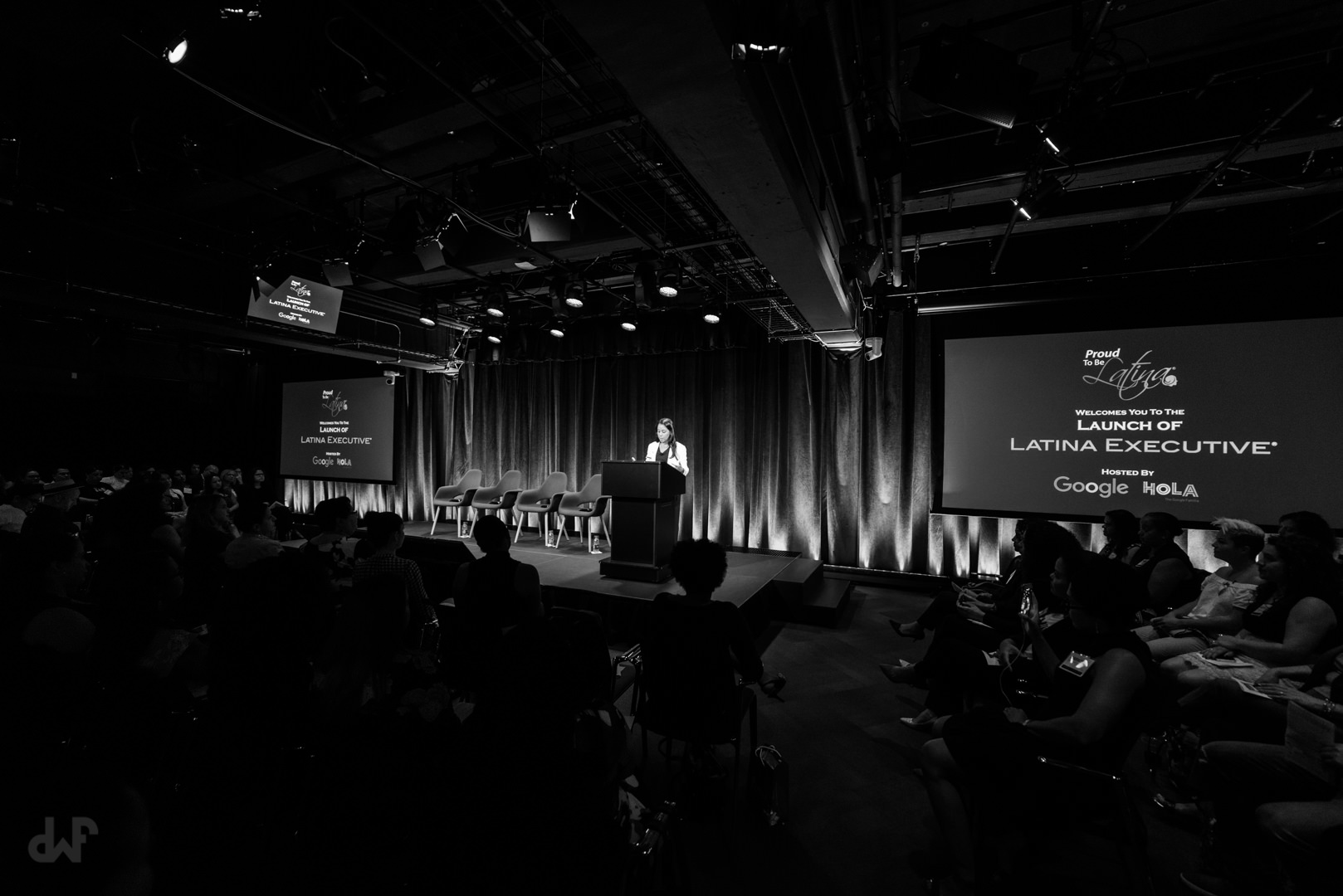For the past twenty-five years I’ve worked on Wall Street, a place that was very foreign to me in my childhood, but one that has been such a big part of who I am as an adult, and one that has driven my mission and work in the Latino community.
Unlike many of my colleagues, I didn’t have a formal education when I entered corporate. I grew up with a very different outlook about the path we were supposed to follow, or create. School was never a supported aspiration, and getting a job was much more important than “spending money on a piece of paper”. That was simply how things were, and I was never supposed to change that because it wasn’t what we did in my neighborhood. As such, I officially entered college to complete a Bachelor’s degree in finance when I was twenty-five, after having worked jobs that paid minimum wage and left little to survive on.
In my current firm, where I’ve worked for the past twenty-two years, by age twenty-five, most people have years of progressive work experience, and possibly a Master’s degree. I entered as a Secretary. Without a degree, it seemed like the most logical first step in building a career, or at least in getting my foot in the door and having at an opportunity to earn a paycheck that kept me from struggling. I had it all figured out – I would work during the day, go to school at night and within a couple of years, through hard work and a degree under my belt, I would be in excellent shape to succeed as an executive. I also thought, very innocently, that the playing field was leveled and I would have the same opportunities as everyone else did, no matter my background.
Even as an Admin, I set a huge goal: I was going to be a Vice President by the age of 40. Just as quickly as I set that goal I also realized that most of the people who were already Vice Presidents and higher, were not people of color, and very few of them were women. I also learned something very profound: I was “Hispanic”, or to some, “Latino”. These weren’t terms I immediately identified with. In fact, it was in Corporate that I first learned that I was “Latina”.
When you grow up in a community of Dominicans and Puerto Ricans you don’t walk around labeling yourself. In Corporate, you’re checking that box almost every day, in the figurative sense. The label also put me in a box where people assumed I was underprivileged and needed saving. It also served as a reminder that I was poor.
Other than in administrative or maintenance roles, there weren’t Latinas in my division. You were either a secretary or a cleaning lady. There was no deviation from that. No different than the expectations that I had already been set in my neighborhood. I initially thought it was because Latinas didn’t want the higher roles, but that same representation was lacking when I walked the hallways, attended networking events and met senior leaders. Moreover, those same individuals I aspired to be like went to colleges like Harvard and Yale and often asked me where I graduated from. When I said, “Baruch College”, they’d nod their heads, and sometimes respond with “that’s nice”. Never with any expectations that one day I could sit in their seat.
Despite the nods and labels, I didn’t think I was any different, better, or worse than any of those executives. And my poverty status, well that was temporary. I remained focused on my goal. The firm was large, and I was convinced I just hadn’t been there long enough, and somewhere deep in the organization, I would eventually find someone that looked like me. Yet, no matter how focused I remained, there were always reminders of who I was, and where I came from, and these reminders were sometimes discouraging. On many occasions, people’s behaviors and actions almost had me walking out the door, but there was something deep inside of me that told me that I belonged there and I had something to accomplish.
One evening, one my bosses was in desperate need of help with a spreadsheet. This type of work was usually handled by an Analyst, but I was highly experienced and willing to help. I spent hours working on the spreadsheet, staying almost until one in the morning to finish it. I submitted the job with such pride and a sense of accomplishment. Finally, I would have an opportunity to show my boss that I was capable of harder tasks.
My pride was met with little enthusiasm. I didn’t even get a “thank you”, or a “good job”. The next day I went back to him and asked how the spreadsheet worked out. He said, “Pretty good, considering.” Without thinking, I asked, “Considering what?”, to which he responded, “That place where you came from.” I asked him to explain what he meant, and he said, “You know, that place in the Bronx.”
I was extremely naïve to what racism and bias meant back then, and later on, I realized that he had formulated an opinion of what I was, and what I could be, based on my gender, the color of my skin and the place I grew up in. For him, I came from a place of low standards. He hadn’t been the only one. Many others along the way formulated their opinions. On many occasions, I was taken out of the running for projects and positions based on my background, not on my potential. This held true for other people of color.
For many years, poverty became a source of shame. It was a silent, yet loud reminder that people like me weren’t destined to succeed. Poverty was like an inheritance – my mother grew up in poverty, as did my grandmother and everyone before that. I was supposed to follow in those footsteps. It was this mentality that often kept me from raising my hand for hard projects, or kept me at home when others were engaging with senior leaders and getting the exposure necessary to be considered for high-level projects and roles. I dreaded helping others because I assumed that they too would think that I was “pretty good, considering”. While there was bias throughout my career, I became my worst enemy and critic, ashamed that my background deemed me worthless.
When you remain ashamed of something, you try your best to hide it. It becomes an overbearing secret that keeps you stuck. Sometimes you use it as an excuse or a crutch. I remember doing many great things in my career, and then always overshadowing that success with a poverty mindset. When I failed, I blamed it on poverty and adopted the mindset that failure was to be expected, considering where I came from. It resulted in my constantly thinking that I didn’t always deserve the things I had earned. I started believing that I was “lucky” that someone had given me an opportunity, when in fact I worked extremely hard, and nothing was ever handed to me.
Throughout my journey, there were many others who also formulated their opinions. Some were subtle and others were outright rude. It wasn’t until I finally decided that I would own my story, and hold it up with pride. If it was one of poverty so be it. If it was one of attending a community college so be it too. The big picture wasn’t about my childhood. The big picture was about what I could accomplish, despite my childhood. I stopped comparing myself to others and began to realize that instead of thinking about what I lacked, I had to focus on what I could offer.
I began to put a strategy in place, and developing relationships with people in power who saw my potential. I would raise my hand for the toughest assignments and attended every possible meeting and event. I succeeded without bragging and lost without excuses, completely focused on my goal, and understanding that setbacks, bias, and other people’s belief were all fuel to push me forward.
With the right exposure, strong work ethic and positive attitude I came to be known as a woman of high potential. Over the years I not only became an excellent admin, I moved on to become an Assistant Vice President, a Vice President, a Senior Vice President and eventually an Executive Director – all before the age of 40. I exceeded my own expectations. In 2012, I was chosen as one of twenty high potential future leaders of the firm.
Ironically, my very first office, near the corner, belonged to the man who put me down after I completed his spreadsheet. When I reached the level of Senior Vice President, I had become the only Latina in the history of my immediate division to ever accomplish that. Today, I am still the only Latina at my level in my division.
While many organizations have to do better with the hiring, retention, and elevation of Latino talent, we as a people also have to stop believing our own lies, and moving away from the mentality of “people like me”. I often hear women in corporate say that they can’t succeed because they don’t see people like themselves. That creates the perfect opportunity to be the ONE there, even if you’re the only one. Sometimes we need to be the first in order to promote the inclusion of others.
The desire to succeed has little to do with your background, education or status – it has everything to do with your grit. Had I believed my own lies, and bought into the ego of others, I would have never reached an executive level. The core of success is knowing that you have something to offer and bringing it to the table every single time.
**************************************************************************************************************************************
 Yesi Morillo-Gual is a Corporate Executive and Entrepreneur. She currently holds a senior executive role in financial services. Outside her corporate role, Yesi is the founder of Proud to Be Latina, an organization created to help Latinas banish self-doubt and break self-imposed barriers. A personal and professional development network, Proud to Be Latina educates, empowers and encourages Latinas to rise to their full potential through action-driven platforms.
Yesi Morillo-Gual is a Corporate Executive and Entrepreneur. She currently holds a senior executive role in financial services. Outside her corporate role, Yesi is the founder of Proud to Be Latina, an organization created to help Latinas banish self-doubt and break self-imposed barriers. A personal and professional development network, Proud to Be Latina educates, empowers and encourages Latinas to rise to their full potential through action-driven platforms.
An empowerment expert, motivational speaker and TEDx speaker, Yesi has been featured in Latino Leaders magazine, Latina magazine, Working Mother Magazine, New Vision magazine, NBC Latino, The Huffington Post, and The Glass Hammer, among others.
In May 2016, Yesi earned her fourth degree, a Master of Science in Professional Writing from New York University. She holds an MBA in Administration from Touro University and a Bachelor’s in Finance with a minor in Graphic Design from Baruch College.
Yesi is the author of Rise: Affirmations for Personal Growth and the forthcoming novel Stay. She resides in New York City with her husband and two sons.
 Wendy Angulo Productions
Wendy Angulo Productions







